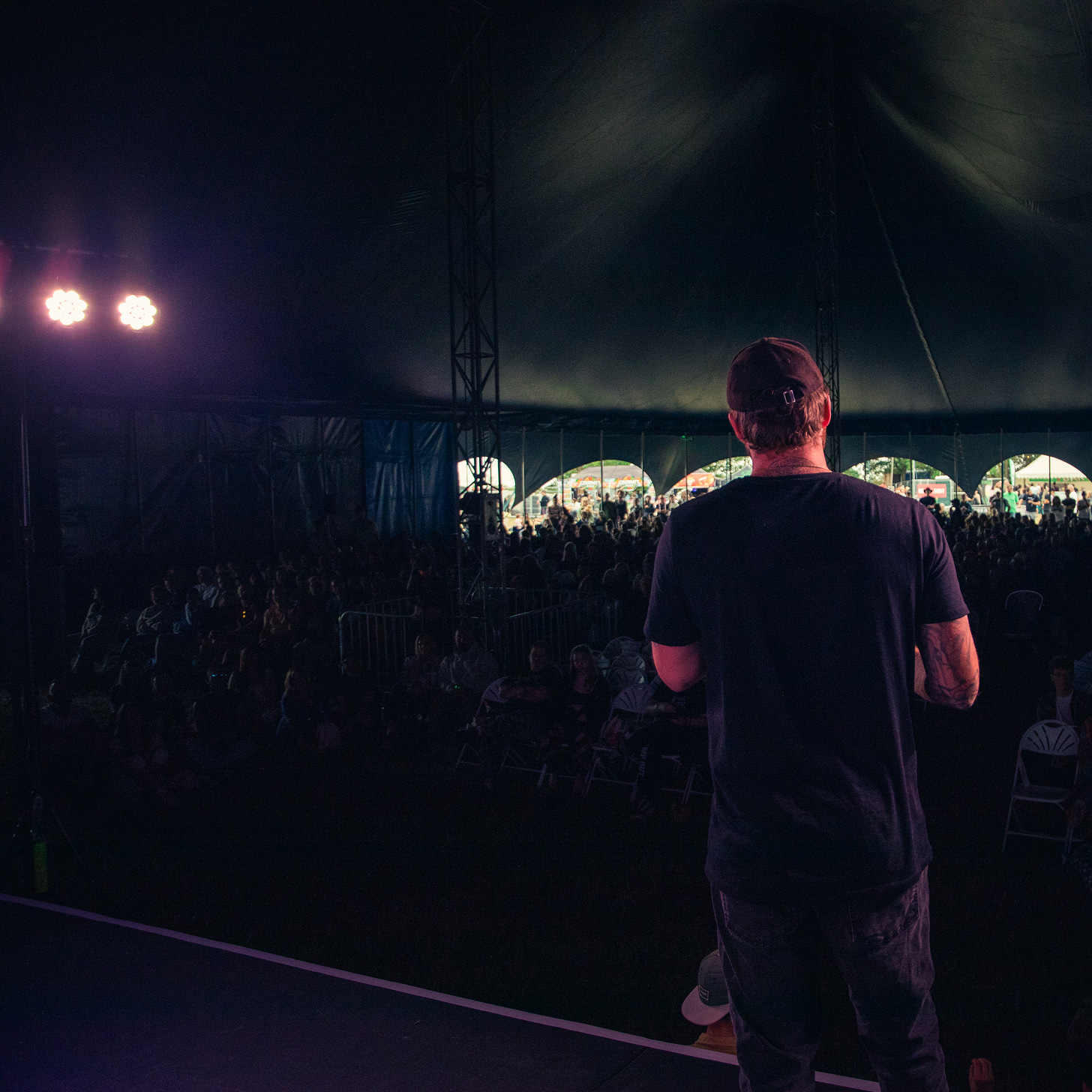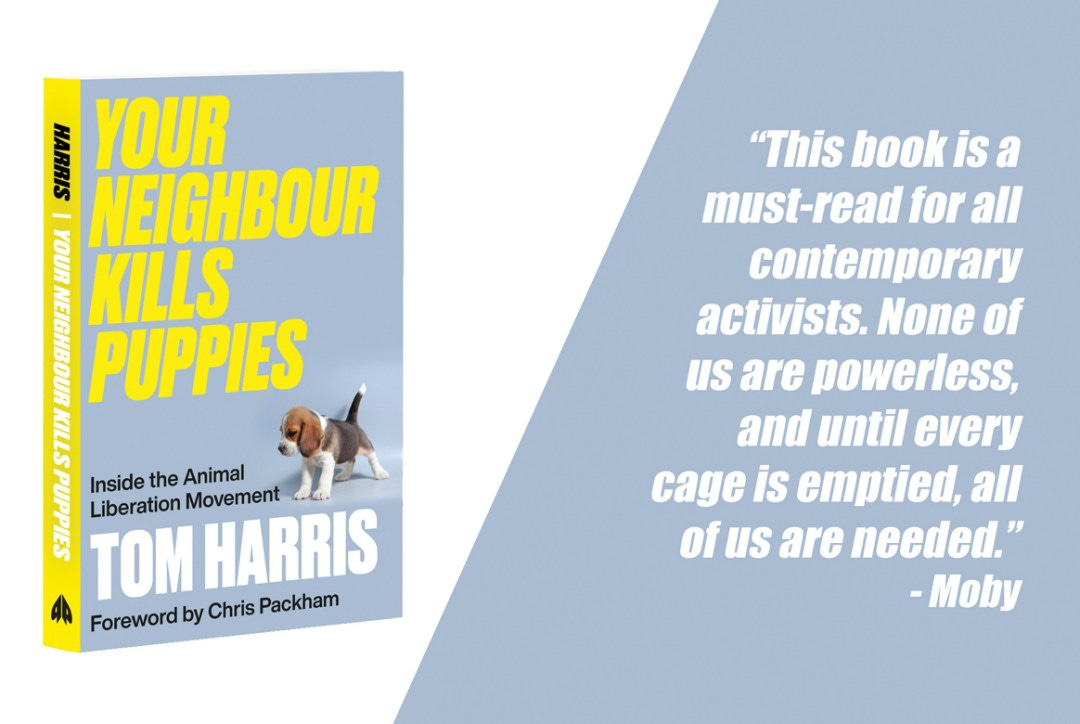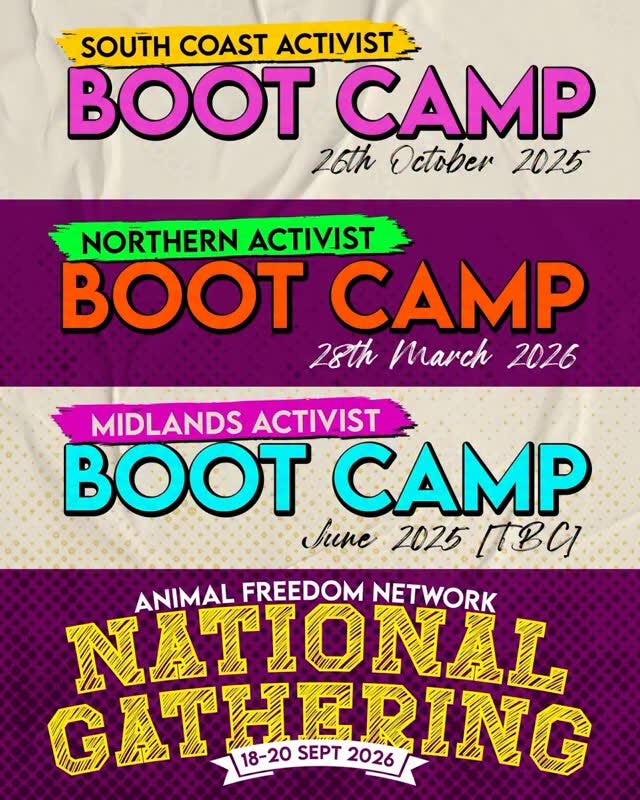When The UK's Biggest Vegan Event Can’t Be "Fully Vegan"
The Vegan Camp Out dilemma: Principle or progress?
When principles clash with progress, what do we choose?
Last weekend I went to the Vegan Camp Out festival in the UK.
Vegan Camp Out is the UK’s biggest vegan festival. Three days of music, talks, and a massive variety of delicious vegan food.
It attracts thousands of vegans, actually over 13,000 at it’s peak, with this year’s event downsizing for a more modest but still impressive 7,000 attendees.
This year I spoke on the Education Stage (video coming soon) to what I’m told was over 1,000 people. Thank you to everyone who came.
I met some incredible people and received so much love and support for my work. Thank you all.
The festival dilemma
In the UK, an event of this size and it’s requirements (electricity, water, plumbing, waste management, security etc) comes with limitations.
Unfortunately, most available sites for a large event like this are linked with non-vegan activity in one way or another.
Suitable locations are usually found in rural areas, and can be linked with hunting or farming for example.
The owners may be involved in it themselves, or rent the land out for these purposes. Or it could be owned by the local council/government, which also runs and operates animal farming or manages land for that purpose.
Even if they’re not linked to farming or hunting, it’s practically a guarantee that the owner of the land isn’t vegan. Neither will 99% of the contractors and suppliers for the build/break-down of the site, security, water, power etc.
So we’re left with a tough question - is the better option to cancel the festival on principle, or compromise and go ahead with the festival, accepting the limitations of our non-vegan world?
Would you cancel the festival over this?
A conversation with Tom Harris
At this years’ VCO, I had the pleasure of hanging out with activist Tom Harris, author of the book, “Your Neighbour Kills Puppies”.
Tom began fighting for animals in 1998, when he attended his first action at the age of 15. He joined his local hunt saboteurs group as they physically intervened to try and stop hunters from killing foxes.
In the years following, Tom campaigned with many powerful and successful protests. The most notable being the SHAC (Stop Huntingdon Animal Cruelty) campaign to shut down Europe’s largest animal testing laboratory, Huntingdon Life Sciences (HLS).
In 2001 he climbed the razor wire fences of HLS’s beagle breeder, Interfauna, where he spent two hours blockaded inside with the dogs. He describes it as the most emotionally traumatising time of his life.
For his work with SHAC, Tom was sentenced to 5 years in prison.
Today, Tom continues his amazing work for animals. He recently launched boot camps across the UK with his team at Animal Freedom UK to help advocates become as effective as possible and mobilise their communities.
The UK’s biggest opportunity
Tom gave an incredibly inspirational speech on the Education Stage at the VCO event, teaching activists about successful campaigns and why they were successful, as well as promoting the upcoming activist bootcamps.
After his talk, we had a chat about the event, and some of the issues I’d mentioned earlier.
We agreed on how it’s not ideal, and how difficult it is to operate such a large event ethically in our non-vegan world, but Tom said something that really stuck out to me,
“This is the biggest recruitment opportunity in the UK”.
I’d never thought about it this way and of course, he’s right.
Over 6,000 people, mostly vegans or at least open to veganism, converging on one location for 3 days - where else can you find an opportunity like this in the UK, or anywhere?
Where else do you have the chance to potentially turn that many people from passive consumers to animal advocates? And in some cases, from animal eaters to vegans?
Principle shouldn’t become the enemy
Sure, we could take the most “principled” approach available to us.
We could cancel all large vegan festivals and gatherings because they have to make compromises we aren’t comfortable with, refuse to patronise vegan businesses that work with non-vegan suppliers or rent from non-vegan landowners/farmers/hunters etc, reduce our movement to a small, exclusive group… But you don’t need me to tell you that’s not how we’re going to change the world for animals.
I was (and still am) impressed by Tom’s mature, practical and strategic take on this. This is the sort of big picture thinking the animal movement needs more of.
Every social movement faces a tragic dilemma: to remain “pure” and risk irrelevance, or to compromise and risk hypocrisy.
The real question is not whether we compromise, but where we draw the line, and how we use those compromises to fuel greater change.
Principles are important, but we can’t let them become the enemy of progress.
Follow Tom Harris on Instagram.




![Tom Harris [International Animal Rights Conference: 5.+6.9.2020 - Digital Conference] Tom Harris [International Animal Rights Conference: 5.+6.9.2020 - Digital Conference]](https://substackcdn.com/image/fetch/$s_!fCUQ!,w_1456,c_limit,f_auto,q_auto:good,fl_progressive:steep/https%3A%2F%2Fsubstack-post-media.s3.amazonaws.com%2Fpublic%2Fimages%2F56cd2621-da5c-40de-8974-dc718bb5c6e7_800x807.jpeg)

Crazy that this should be even a discussion
I think you're probably conceding too much by saying that it isn't "fully vegan."